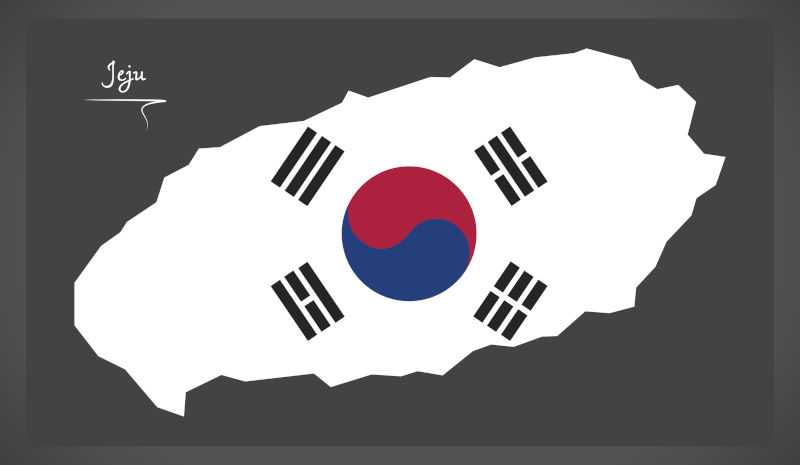Middle power moves: South Korea and the future of global governance
November 24, 2025
Is South Korea eyeing a new global order? A quiet debate is emerging over Seoul’s potential alignment with a rising alternative to Western governance.
A quiet but noticeable debate is beginning to surface in Seoul as to whether South Korea could get away with starting down the path towards joining the Brazil, Russia, India, China and South Africa (BRICS) group. The premise: as BRICS expands and solidifies into a parallel ecosystem of global governance, early movers will secure benefits. The logic is based in Canadian and Australian activism in the UN system - essentially, get in early, and take lots of photos.
The early mover corollary comes from the United Nations Conference on International Organization (April–June 1945). In the archival images one figure appears again and again: Australia’s Herbert Vere Evatt. He’s in the foreground, background, smiling, concentrating, shaking hands, and signing papers. To exaggerate the point, Evatt got in early, took lots of photos, and secured Australia’s credibility with the primary supporters of the emerging system of global governance.
Despite Trump’s threats to punish those that do, a number of states are positioning themselves to build credibility with the primary supporters of the next emerging system of global governance –BRICS. The diplomatic photo-bombing has started.
The UAE joined in the 2023 enlargement. Turkey and Thailand have signalled interest. Malaysia has shown interest but remains hesitant, while Indonesia – widely seen as the most significant potential member – engages diplomatically and is considering an application.
A debate is now beginning in Korea. Should it make a move or miss the early mover advantage?
Middle powers have long cultivated a narrative that exaggerates their influence in global governance, presenting themselves as bridge-builders, facilitators, and quiet architects of international order.
In reality, much of this self-image reflects selective memory and flattering mythology. Their contributions have typically been procedural rather than structural – drafting language, hosting meetings, or executing decisions already shaped by great-power bargains.
Yet these states often recount their histories as though they steered outcomes rather than simply participated in them. The result is a persistent self-aggrandizing tradition in which middle powers inflate their strategic significance and misrepresent modest roles as decisive achievements.
The one thing that they do unquestionably contribute is legitimacy.
Middle powers lend breadth, diversity, and the appearance of wider consent to institutions overwhelmingly shaped by great-power interests. Their participation signals that the system is not merely an imposition by the strong, but a framework voluntarily embraced by a broader community of states.
Great powers cannot manufacture this legitimacy on their own; they require the flags, votes, and visible engagement of states that sit below them in the hierarchy but above the status of peripheral actors. Middle powers therefore serve as the essential legitimising layer – endorsing, operationalising, and publicly validating the institutional designs crafted elsewhere, and in doing so helping great powers stabilise the orders they create.
This same dynamic is now playing out in the BRICS-led institutional ecosystem. BRICS presents itself as a multipolar, egalitarian alternative to Western governance structures, but its internal reality is familiar: China – followed by India and Russia – sets the strategic direction. The New Development Bank does not represent the collective design preferences of 20 equal partners; its priorities increasingly reflect Beijing’s worldview.
But just as the United States once needed the legitimising presence of Ottawa and Canberra, China and India now benefit from the sovereign endorsement of Brazil and South Africa, and other early movers.
Middle powers do not provide legitimacy for free; they expect and often receive meaningful returns. By aligning early and visibly with great-power initiatives, they secure a place – however modest – within the institutional architecture that follows. They secure stability, status, and predictable channels for advancing national interests in a world they cannot shape alone.
In effect, legitimacy becomes a political currency: middle powers supply it, and great powers compensate them with access and a seat – if not at the head of the table, at least close enough to matter.
Indonesia, by embracing a role as early legitimiser, is arguably strengthening the credibility of a rising institutional alternative and in return will gain access to financing channels, political capital, infrastructure partnerships, and diplomatic visibility. Indonesia is not designing BRICS institutions, but it is embedding itself in them early enough to secure influence that later entrants will not secure.
This emerging reality forces South Korea to confront an uncomfortable question on its strategic choices. Seoul’s foreign policy identity has long been rooted in the US-led order – a security-dependent, liberal, rules-based ecosystem that has supported its prosperity. But if global governance continues to fragment into competing architectures, then the logic of middle-power legitimisation becomes strategically relevant again.
Should Korea lend its sovereignty to a new institutional project early enough to secure benefits? Or does such a move risk signalling hedging to its American ally?
The old belief that middle powers could bridge systems is fading, squeezed by intensifying US–China rivalry. The real question is no longer whether middle powers can shape global governance, but whether they should be early legitimisers of the system most likely to influence their future. Early entry means influence and goodwill; late entry means diminished bargaining power; refusal may mean exclusion from structures their neighbours help validate.
South Korea may soon find it difficult to ignore the advantages Indonesia is accruing. If BRICS evolves into a parallel governance structure in finance, trade, currency arrangements, digital infrastructure, or critical technologies, waiting too long may incur costs.
Middle powers do not design systems – they choose when to endorse them. And in a world moving from hegemonic order to competitive institutionalism, early legitimisation may once again become the primary currency of middle-power strategy.
The views expressed in this article may or may not reflect those of Pearls and Irritations.

